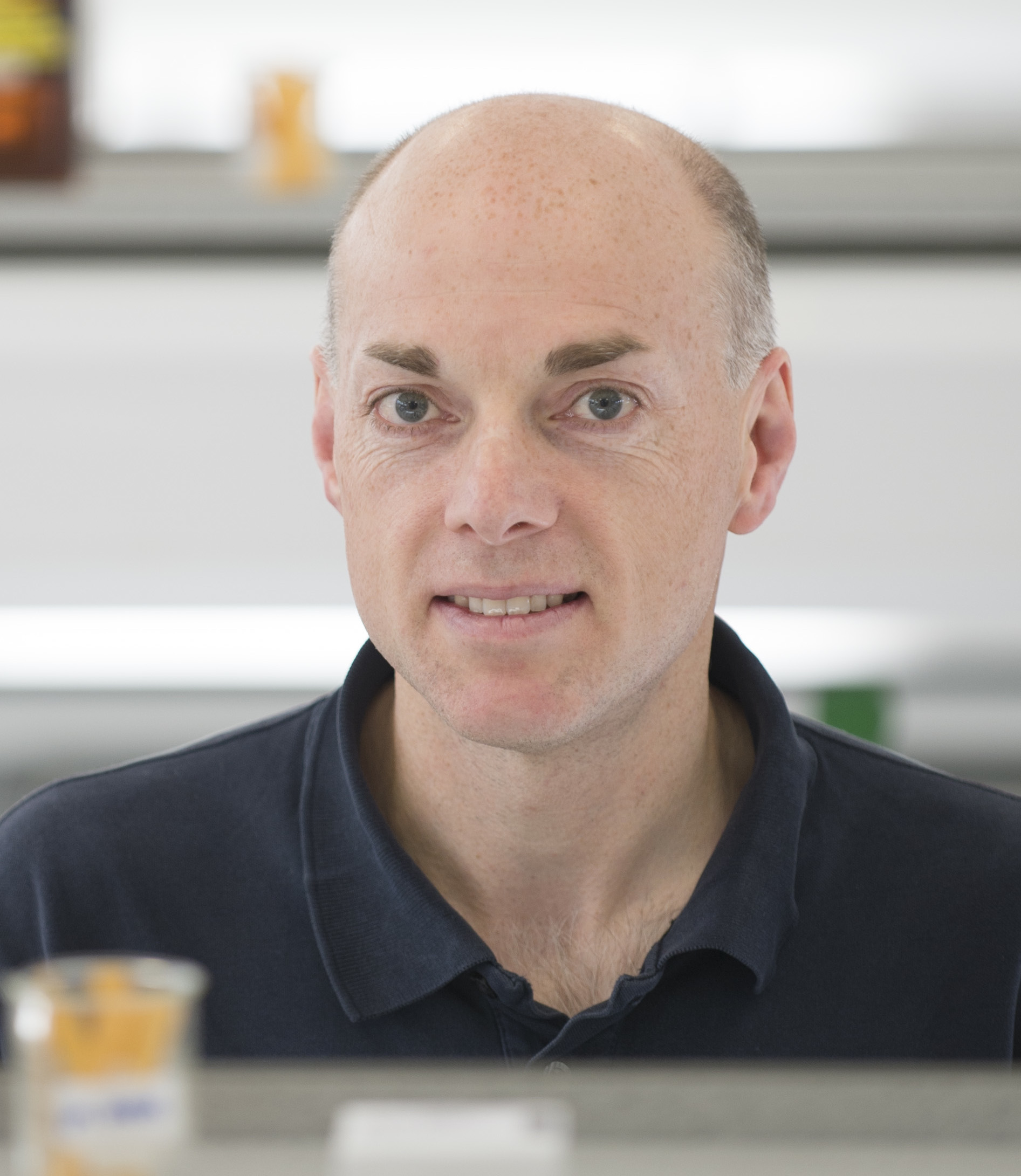He was awarded a University Scholarship to study for a PhD at the
University of Bristol under the supervision of Professor Christine
Willis. The aim of his PhD work was to develop the use of
various
oxidoreductase enzymes for the synthesis of enantiomerically pure and isotopically labelled
bioactive compounds and to determine the scope of these
biotransformations in organic synthesis.
He then carried out a post-doctoral fellowship (funded by the Alberta
Heritage Foundation for Medical Research) in the laboratory of
Professor
John Vederas at the University of Alberta, Canada. When not climbing
the Rocky Mountains or teaching the Canadians how to play football,
Andy investigated diaminopimelic acid metabolism for the design of
novel antibiotics. He also studied the biosynthesis of the fungal
metabolite, lovastatin and was involved in the characterisation of the
lovastatin nonaketide synthase (LNKS) protein, the first purified
Diels-Alderase enzyme.
He then returned to the University of Bristol to take up a junior
research fellowship position working with Professor Timothy Gallagher
on
the design and synthesis of neuronal nicotinic receptors as well as
developing new Pd(0)-catalysed methodology for the synthesis of small
libraries of highly substituted 2-fluoropyridines and 2-pyridones.
In January 2003, he was appointed to a lectureship in the School of
Chemistry at the University of Glasgow and currently holds the position
of Professor of Organic Chemistry. He runs a research
group whose work focuses on the development of radionuclide and
fluorescent molecular imaging agents and new synthetic
methodology for the synthesis of chiral, biologically active and
medicinally important compounds.
His main interests outside chemistry include supporting the sleeping
giant, Wick Academy FC. He enjoys running and is a member of the
Maryhill Harriers.

